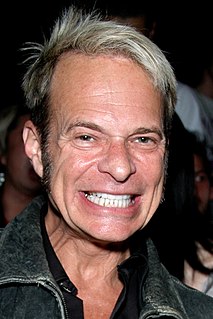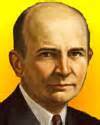A Quote by Stan Getz
It’s like a language. You learn the alphabet, which are the scales. You learn sentences, which are the chords. And then you talk extemporaneously with the horn. It’s a wonderful thing to speak extemporaneously, which is something I’ve never gotten the hang of. But musically I love to talk just off the top of my head. And that’s what jazz music is all about.
Related Quotes
I talk about things in music that I would never talk about with my best friends, which I think seems like a weird thing, but my justification in my head as to why it's okay is because it's cryptic enough and there's enough meat around it to make it all okay and no one can really prove what any of the songs mean.
I speak English, obviously, Afrikaans, which is a derivative of Dutch that we have in South Africa. And then I speak African languages. So I speak Zulu. I speak Xhosa. I speak Tswana. And I speak Tsonga. And like - so those are my languages of the core. And then I don't claim German, but I can have a conversation in it. So I'm trying to make that officially my seventh language. And then, hopefully, I can learn Spanish.
It is like using a smoke screen, the same thing for an individual. The topic here is Islam. If French politicians are no longer talking about Islam, they know they will have to talk about something else, which brings the spotlight on their inefficiency. They will have to talk about domestic social and economic issues and they will have to justify their foreign policy, which is obviously something they need to avoid at all costs.
Sixty-five days principle photography, five-day weeks, which is the only way I'll work. With my cinematographer Russell Boyd, we take as much time as possible before pre-production, looking at stills. The next most important thing: he will come to me and talk about lenses. And I'll see his plan, which is generally great, and I might talk about how the light will be, handheld or not? I talk very freely, and try not to talk specifically, just talk around it, because it can unlock all sorts of things.
There are only so many letters in the alphabet. When I talk to young musicians or authors and they ask for advice, I say, 'You gotta learn all the letters of your own personal alphabet. With music, you need to know all the different kinds of music and everything in and around your given instrument.'
Even my colleagues don't read classic criticism. And my feeling is that if you don't do that then you're not really practicing your craft. That's how you learn how to do it. You don't learn how to write about jazz just from listening to jazz. You learn how to write by reading the great writers and how they worked, the great music critics.
Sometimes there's a lot of tangents because I forget what I'm going to say so much. Sometimes there's very little tangents and stuff for some reason, and then some nights it's all tangents and I can't find my way, and then sometimes I wind up just talking about something completely extemporaneously and then never mention it again ever. It's just completely different.
I've become this voice for a millennial generation of feminism, which is awesome, but at the same time it's complicated. We all know I'm a girl, I'm a woman, but it's difficult to figure out how to talk about it and express how important it is without beating it with a hammer and having it be, "So you're a girl in music! So you're a girl in music!" Yes, I'm a girl in music - can we just talk about something else?
I think, at some level, we see young people all over the country mobilizing around different issues, in which they're doing something that I haven't seen for a long time. And that is, they're linking issues together. You can't talk about police violence without talking about the militarization of society in general. You can't talk about the assault on public education unless you talk about the way in which capitalism defunds all public goods. You can't talk about the prison system without talking about widespread racism. You can't do that. They're making those connections.



































